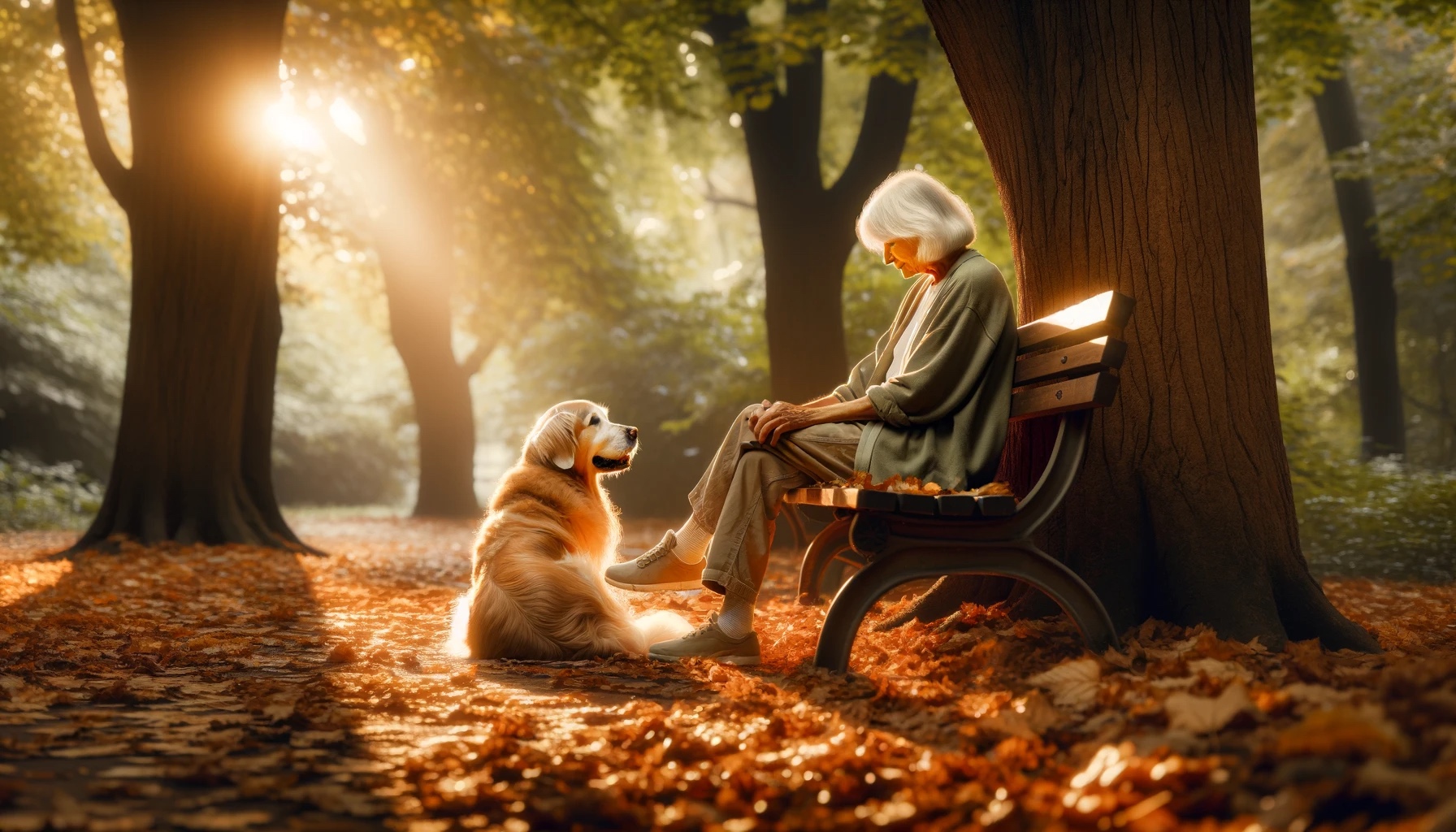Home>Health & Wellness>Common Health Issues>Training for Senior Dogs>My Old Dog and I: Embracing the Golden Years Together


Training for Senior Dogs
My Old Dog and I: Embracing the Golden Years Together
Modified: November 27, 2023
Caring for an older dog is a journey filled with love, patience, and understanding. Remember, their love never ages, and neither should our devotion to their well-being.
(Many of the links in this article redirect to a specific reviewed product. Your purchase of these products through affiliate links helps to generate commission for Pawsomeoldies.com, at no extra cost. Learn more)
As our beloved dogs enter their senior years, our journey with them takes on a new dimension. “My Old Dog and I” is a heartfelt exploration of how to ensure these golden years are as comfortable and joyful as possible for our aging canine companions.
Understanding the Shift to Senior Care
Senior dogs, with their endearing gray muzzles and slower pace, require special attention. It’s essential to understand their evolving needs and adjust their care routine accordingly.
The Importance of Regular Vet Visits
As dogs age, their health needs can change rapidly. Regular checkups, ideally twice a year, become crucial. These visits allow for early detection and management of age-related health issues.
Common Health Issues in Senior Dogs
Older dogs may face various health challenges, including:
- Arthritis
- Dental issues
- Vision and hearing loss
- Organ function decline
Being aware of these potential issues helps in monitoring and addressing them promptly.
Nutritional Needs for the Aging Dog
Senior dogs often require diets tailored to their changing nutritional needs. Lower calorie diets, for instance, can help manage weight as their activity levels decrease.
Exercise: Adapting to Their Pace
While exercise remains important, it should be adjusted to match your senior dog’s energy levels and mobility. Gentle walks and low-impact activities are beneficial.
Comfort is Key
Ensuring your dog’s comfort becomes paramount. This can mean orthopedic beds to soothe aching joints or ramps to help them navigate stairs.
Mental Stimulation
Keeping their minds active is just as important as physical exercise. Puzzle toys and simple training exercises can keep their minds sharp.
The Role of Medication
Some senior dogs may need medication for chronic conditions. Regular monitoring for any side effects is important, and adjustments should be made as needed.
Dental Health
Regular dental checkups and cleanings can prevent problems that are common in older dogs.
Managing Sensory Loss
Adapting your home to accommodate vision or hearing loss can help your senior dog navigate their environment safely.
Understanding Their Limitations
Recognizing and respecting your dog’s physical limitations is important. Avoid pushing them beyond their comfort zone.
The Power of Routine
Older dogs often find comfort in a predictable routine. Keeping their daily schedule consistent can help them feel secure.
Preparing for the Inevitable
Discussing end-of-life care with your vet can be difficult but is necessary to ensure your dog’s comfort and dignity in their final days.
Cherishing Every Moment
Above all, cherish every moment with your senior dog. Each day is a gift, filled with opportunities to create lasting memories.
Caring for an older dog is a journey filled with love, patience, and understanding. By adapting to their changing needs, we can make their senior years comfortable and filled with joy. Remember, their love never ages, and neither should our devotion to their well-being.
